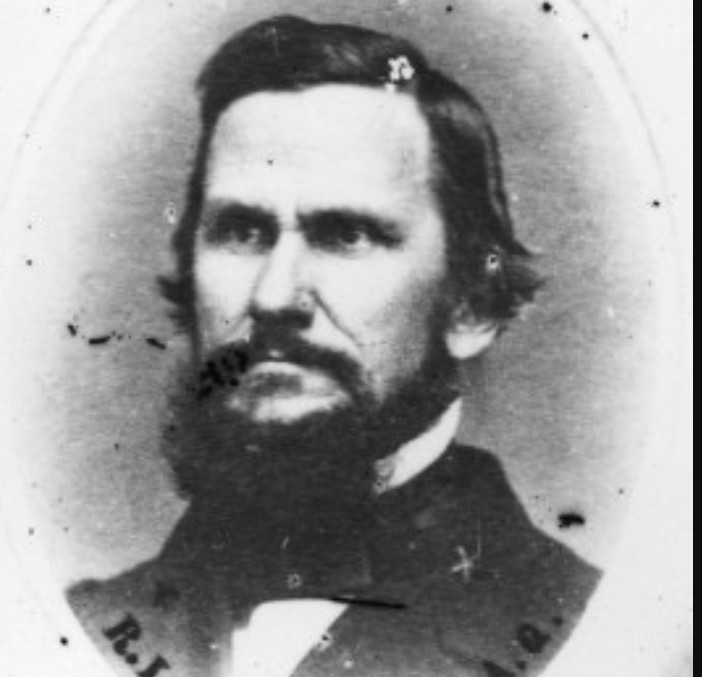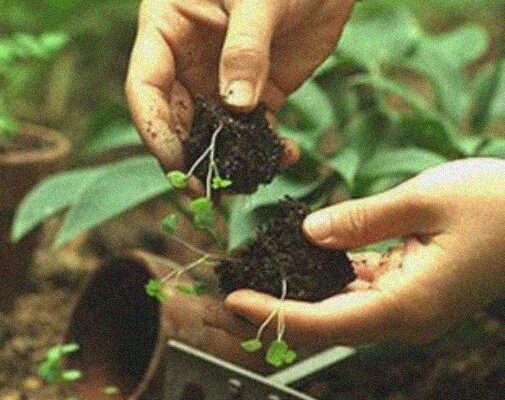There is an instinct in every Southerner, at least those of any quality of breeding, and it is that we long to dig in the dirt. Our connection to the land is as binding as our familial connections, and as satisfying as they are aggravating.
My grandma had a garden, my mother attempted to raise house plants, unsuccessfully, as she had the preverbal brown thumb, and I have always considered myself something of a Southern agrarian, philosophically. However, the mental assent to the necessity of gardening is insufficient to satisfy that internal longing that attaches oneself to the land.
So, for the last three years, I have been rediscovering my love for the land, I’m planting and harvesting, caring for the small amount of land under my stewardship, and developed something more accommodating to the creatures dependent on a healthy environment. I’ve transformed the way I approach caring for this little ecosystem.
I stopped using any unnatural pesticides for wasps, hornets, ladybugs, herbs, etc. For a herbicide solution, I cut the grass high, over-seed, mulch, and use a natural fertilizer that slowly feeds the lawn. I have some weeds, of course, but I tell the neighbors it’s for biodiversity reasons. The soil is full of worms, creepy things, and a feeding ground for all types of birds and small animals. The result is a beautiful lawn of mostly tall fescue.
In the forward, neighbor facing ecosystem, I have planted several types of roses, lilies, other annuals and perennials, each blooming in magnificent color over the course of spring, summer, and fall. But, the show stopper of the presentation is the hibiscus. The neighbors had worried that it would not come back after a hard winter. However, after cutting it back at the beginning of spring, it has rebounded and is approaching its season of blooming. People on their walks or driving by, stop, marvel, and take a photograph to capture all of its momentary beauty. There is a certain amount of pride in seeing others enjoy the beauty God has given me stewardship over.
In the back, away from public view, I have a significant amount of produce planted, but not so much as to overburden the soil, nor myself. Blackberries, blueberries, mint, peas, beans, watermelon, and cantaloupe are starting to grow along my suburban fence line, and I’m sure I will have to cover them with netting to avoid the birds plundering too much. Three types of tomatoes are spouting, along with bean bushes, three types of carrots, two types of lettuce, and strawberries, all contained in raised beds. Yes, there are many herbs growing, and I honestly have lost track of all their names, for they are under the care of my bride.
Purposefully, I have no hybrids growing, but only heirloom varieties. Invasive species of plants and animals can destroy ecosystems, not through ill will, but because they are out of place, and therefore must be limited in the scope of their destruction. A good gardener surveys and plans to maintain an order that is sustainable.
As the saying goes, the north is a direction, but the South is a place, and it is our connection to the land that keeps us grounded. Unfortunately, too many of us have lost that rootedness, we have suburbanized and urbanized, planted the seeds of a nutrient deficient monoculture. We have worn the soil out, and we must rebuild what we have lost.
So, use whatever space you have to plant a garden, reconnect with your soil, your history, your land, and your people.
Deo Vindice! God save the South!

Service to God and honor to the South.






Great idea to stock up on organic heirloom seeds too. Because of chem trailing and many other things some sort of green house might be best? And don’t forget ‘industrial fire proofing’ your house, gas mask, body armor, night vision and ammo. Oh … and grits of course.
https://www.infowars.com/posts/chinese-regime-conspiracy-theory-u-s-creating-insect-bio-weapons-to-cause-famines/
https://www.geoengineeringwatch.org/
I’ll agree that what’s widely purported today to be the faith taught by the Nazarene was not the faith that conquered Europe, but find no contradiction between warrior orders and social distinctions, and the Biblical faith taught by the Nazarene. Declensions and defections from the scriptural standard are no real argument against its enduring truth claims. Martin Luther was an evangelical Christian who had that conquering spirit in spades.
Certainly, our enemies are having a field day twisting the meaning of passages like Gal. 3:28, but if you’ll allow scripture to interpret scripture you’ll understand that this passage is not abolishing social distinctions, but simply emphasizing a common relation in Christ. Such distinctions were well understood by the Church fathers. On Gal. 3:28 Augustine wrote:
“Difference of race or condition or sex is indeed taken away by the unity of faith, but it remains imbedded in our mortal interactions, and in the journey of this life the apostles themselves teach that it is to be respected, and they even proposed living in accord with the racial differences between Jews and Greeks as a wholesome rule.” -Augustine on Galatians 3:28
In this connection, I highly recommend a pamphlet by Dr. Ron Rumburg:
https://confederateshop.com/shop/books/raping-sacred-scripture-the-violation-of-galatians-328
Similarly, a passage such as Luke 14:25-33 needs to be read in a broader context to understand the meaning. The same Christ who said ‘Woman, what have I to do with thee’ at the Marriage in Cana to his mother (John 2:1-5) was tenderly solicitous for her welfare from the cross when he said to Mary, and the disciple John, ‘Woman, behold, your son’ and ‘son, behold, your mother’. (John 19:25-37).
I agree German Confederate,they have made of mockery of what Jesus taught.The Jews have turned the Pharisees into the Chosen.They have distorted things greatly.Their Scofield/Darby project has turned Southern Protestant churches into Jew/Satan worshipping centers of anti-White agitation.I shall make sure to check out the book you recommend.
Thanks Rebel Roy. The same author also has a short booklet called ‘One Blood-Many Races’ :an exposition of Acts 17:26 ff. It’s sad to see organizations like Answers in Genesis and Creation Ministries International taking the ‘woke’ position in denying races. I think they do it because of their position against evolution, and are afraid that to acknowledge that Almighty God created the races as though it would undermine a creationist position.
Great article
Thanks for this piece. An often missed aspect of the early 20th century back to the land movement was not just the practical benefits of an agrarian lifestyle but the spiritual and deeply human attachment we were meant to have with the land. I’ve never been able to remain angry or concerned about “life” when I’m hiking, or planting, or clearing brush. Your chemical free approach and soil health focus is critical.
The Good Life was an otherwise silly mid 1970’s British TV series but worth checking out. A suburban man frustrated with life, work, and “what ifs” turns his entire yard into an organic farm and goes off grid, wood stove, etc. It very well may be what our futures look like so let’s get dirty now.
We’ve got a LOT of preparing to do and food is at the top of the list –
http://nicholasstixuncensored.blogspot.com/2022/05/wed-may-25-2022-834-pmsubject-world.html
https://darkoutpost.com/conspiracies/dark-outpost-live-05-23-2022-leaked-autopsy-hillary-died-twice/
I tried my hand at a small garden last year and did pretty well.Both granddaddies had great gardens even though both worked till 8 pm at night(one at a small grocery store the other his own filling station).I don’t know how they did it.One even had cows and pigs as well.He had to start about 5am before he went to work and then do more after work.I believe that it is important for Southern White men to grow things as a way to connect with their ancestors and the Lord who made the land and things that grow on it.Not only foods but trees and scrubs and beautiful flowers are all something we should try to grow.I have learned so many things from older men about this or that aspect of growing things.It is amazing that men could figure out so many thousands of intricate things that are a part of successful growing.To plant at least two,preferably three pecan trees so they pollinate each other,who figured out this important thing.How to prune at certain times for different plants.How to take a cutting and make it grow.So much knowledge goes into it.To the outside observer it may seem not so hard but so much goes into it.Its like the old thought that the more you know you begin to realize how little you know.Great article and exactly something we need more detailed follow up on.I’d love to hear from people here on how they grow their favorite things and their wisdom and tips.One thing I’ve tried for at least eight years is growing tomato plants from seeds.Everyone actually tells me to buy the plants,even my granddaddies bought the tomato plants.But our ancestors grew them from seeds and I will not give up.Several years ago I had beautiful tomato plants I started indoors but in the transplanting the really went down fast.I should have gradually gotten them used to the outdoors according to online sources but who has the time to leave them out a few hours them bring them indoors.I’m not doing all that.Thanks for your effort and God bless all here in good faith.Christ is Lord!
Excellent story! I used to garden every year as a child and have done it sporadically as as adult- during COVID I had one of fairly good size. This year I only have about 50 okra plants but I made up for it by planting a small orchard of 10 peach trees, 10 plum and 30 pomegranates bushes that are all going strong. I have another 80 or so plum and pears in 3 gallon pots but no place to put them until I get some land. One day I hope to have a decent sized orchard and when the kids get older also garden more.